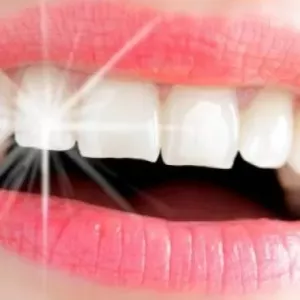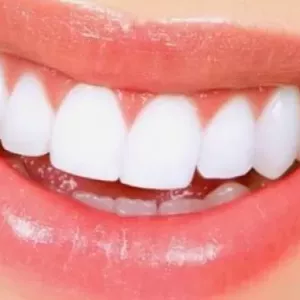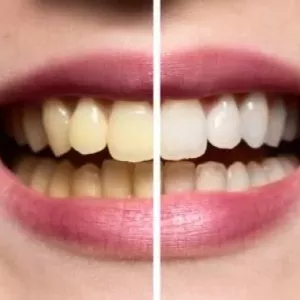دليل المبتدئين للاستثمار في الأسهم: كل ما تحتاج معرفته

مقدمة
يُعد الاستثمار في الأسهم أحد أكثر الطرق شيوعًا وفعالية لبناء الثروة على المدى الطويل. ومع تزايد عدد الأشخاص الباحثين عن مصادر دخل إضافية أو طرق لتحقيق الاستقلال المالي، أصبح من الضروري فهم أساسيات سوق الأسهم، خاصة للمبتدئين.
سواء كنت تفكر في شراء أول سهم لك أو ترغب في معرفة كيف يعمل السوق، فهذا الدليل سيمنحك نظرة شاملة على كل ما تحتاجه لتبدأ الاستثمار في الأسهم بثقة وأمان.
ما هو سوق الأسهم؟
سوق الأسهم هو مكان يتم فيه بيع وشراء حصص (أسهم) من الشركات. عندما تشتري سهمًا، فإنك تشتري جزءًا صغيرًا من ملكية الشركة. إذا ارتفعت قيمة الشركة، ترتفع قيمة أسهمك، ويمكنك جني الأرباح من خلال:
-
ارتفاع سعر السهم (الربح الرأسمالي)
-
توزيعات الأرباح (Dividend) إن وجدت
لماذا يستثمر الناس في الأسهم؟
1. تنمية رأس المال
الأسهم تميل إلى تحقيق عوائد أكبر من الحسابات البنكية أو شهادات الادخار على المدى الطويل.
2. الدخل السلبي
بعض الشركات تدفع أرباحًا دورية للمساهمين، مما يخلق مصدر دخل إضافي.
3. السيولة
يمكنك بيع أسهمك في أي وقت تقريبًا، مما يمنحك مرونة في التحكم في أموالك.
هل الاستثمار في الأسهم مناسب للجميع؟
الاستثمار في الأسهم ليس خاليًا من المخاطر، لكنه مناسب لكل من:
-
يبحث عن عوائد أعلى من الادخار التقليدي
-
لديه أهداف مالية طويلة المدى
-
مستعد لتحمل تقلبات السوق قصيرة الأجل
خطوات البدء في الاستثمار في الأسهم
1. تحديد أهدافك المالية
قبل أن تستثمر، اسأل نفسك:
-
لماذا أستثمر؟ (تقاعد، شراء منزل، تعليم الأبناء...)
-
كم من المال أستطيع المخاطرة به؟
-
ما هو الأفق الزمني لاستثماري؟
2. فتح حساب استثماري
لتبدأ، تحتاج إلى حساب وساطة (Brokerage Account). يمكنك فتحه من خلال:
-
بنوك محلية تقدم خدمات التداول
-
شركات الوساطة الإلكترونية مثل:
-
eToro
-
Interactive Brokers
-
TD Ameritrade
-
SAXO Bank
-
3. اختيار نوع الاستثمار
أ) شراء الأسهم الفردية
اختر شركات تعرفها وتفهم نموذج عملها. مثال: أبل، أمازون، أرامكو...
ب) صناديق المؤشرات (ETFs)
مثالية للمبتدئين، لأنها تقلل المخاطر وتمنحك تنوعًا في الاستثمار تلقائيًا.
4. دراسة وتحليل الشركات
قبل شراء أي سهم، اقرأ عن:
-
الأرباح السنوية
-
النمو المتوقع
-
المنافسين
-
المؤشرات المالية (مثل نسبة السعر إلى الأرباح P/E)
5. إدارة المخاطر
لا تضع كل أموالك في سهم واحد. وزّع استثماراتك لتقليل الخسائر.
نصائح ذهبية للمبتدئين
✔ ابدأ بمبلغ صغير
استثمر ما يمكنك تحمل خسارته دون أن يؤثر على حياتك.
✔ لا تحاول توقيت السوق
الشراء والاحتفاظ (Buy & Hold) أفضل استراتيجية للمبتدئين.
✔ تعلم باستمرار
اقرأ كتبًا، تابع أخبار السوق، شاهد دورات تدريبية.
✔ لا تتأثر بالعاطفة
الأسواق تصعد وتهبط، حافظ على هدوئك ولا تبيع بدافع الخوف.
أخطاء شائعة يجب تجنبها
-
الدخول دون معرفة كافية
-
الاستثمار بكامل المدخرات
-
متابعة توصيات عشوائية من الإنترنت
-
تجاهل تنويع المحفظة الاستثمارية
-
الانجراف خلف الأخبار العاطفية
خاتمة
الاستثمار في الأسهم ليس حكرًا على الأغنياء أو الخبراء الماليين. بفضل الأدوات الرقمية والمصادر التعليمية المتاحة اليوم، أصبح بإمكان أي شخص أن يبدأ من الصفر ويبني مستقبلًا ماليًا قويًا. تذكّر أن النجاح في الاستثمار لا يأتي من الحظ، بل من التعلم والانضباط والصبر. ابدأ صغيرًا، فكر طويل الأجل، واستثمر بذكاء.
الكلمات المفتاحية (Keywords):
الاستثمار في الأسهم، دليل المبتدئين للأسهم، كيفية شراء الأسهم، أفضل تطبيقات الأسهم، تعليم الاستثمار، الاستثمار للمبتدئين، أرباح الأسهم، سوق البورصة، صناديق المؤشرات، فتح حساب استثماري، التداول عبر الإنترنت.







